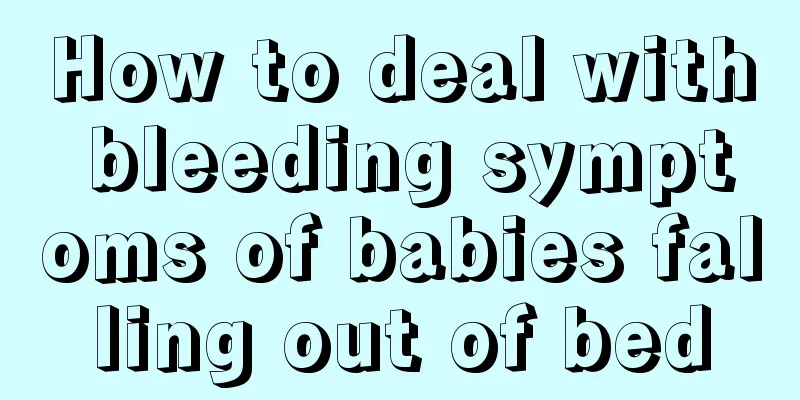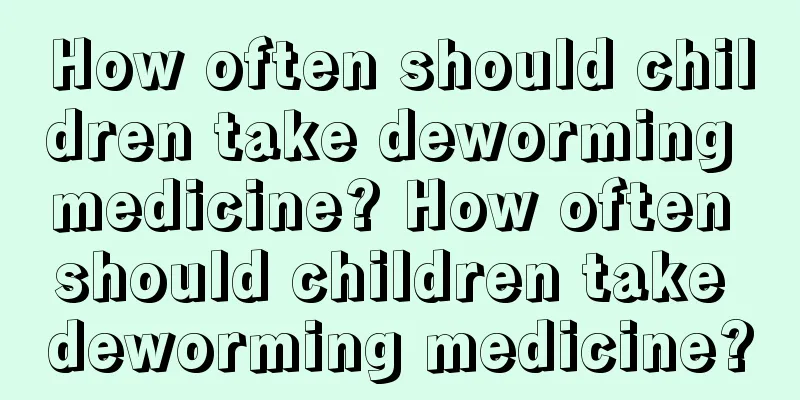How to deal with bleeding symptoms of babies falling out of bed

|
In the process of taking care of the baby, many parents may carelessly let the baby fall out of bed. In fact, this phenomenon is quite common in life. At this time, parents should pay attention to scientific response and try to reduce the harm to their health as much as possible. Then let us understand how to correctly deal with some of the symptoms that the baby experiences after falling out of bed. 1. After falling, we can judge it ourselves like this, don’t panic ! 1. A very important point is to see whether the child cries out loudly. If there is crying at the first moment, don't worry too much. (Of course, he can’t keep crying and can’t stop. If he keeps crying, he may feel uncomfortable, and he needs to go to the hospital.) 2. Then see if the baby's eyes are still as flexible as before. For babies who can't speak, the best way is to wait until they are a little calmer, take an object and move it left and right in front of their eyes to see if their eyes can follow it left and right. If their flexibility is good, then it's ok. Basically, there is no need to worry. 3. For older children who can understand instructions, you can ask them to stick out their tongue, raise their right hand, and do the actions according to your instructions. If everything goes well, there will generally be no problem. 4. Then everyone should remember to check the child’s head to see if there is any dent, redness, swelling, or injury. If so, go to the hospital. But if it is a minor abrasion on the head skin, we don't need to rush to the hospital, but we must closely observe the child for 24-48 hours to see how the child develops. 2. If you experience any of the following symptoms within 48 hours of falling, you need to see a doctor : 1. Feeling listless and sleepy during the time period when you should be awake. 2. Persistent headache or emotional agitation. If the baby cannot speak yet, the baby will continue to cry. 3. Changes in coordination and muscle strength, such as slurred speech and crooked gait; 4. Difficulty breathing and epileptic seizures. 3. Compared with strong self-blame and active handling , Although the risk of falling is not as great as we imagined, no matter how small the risk is, it is better than not happening. So to borrow a phrase from my good friend: anticipation of accidents is far more important than first aid measures. |
<<: What are the symptoms of fetal toxicity in babies?
>>: Why is the child's genitals red and swollen?
Recommend
What should I do if my baby doesn’t want to eat? Nine mistakes your baby should avoid making when eating!
When babies don’t eat well, I believe many parent...
Child vomiting and sleepiness
In daily life, almost everyone has experienced vo...
What can’t babies with anemia eat? These foods should be avoided
There are many foods in life that children can ea...
What is the reason for bad breath in a 10-month-old baby?
Bad breath is a disease of the oral cavity, and t...
Children wet the bed at night_What to do if children wet the bed in the middle of the night
If the baby wets the bed, it is undoubtedly a big...
What should I do if my child has a fever after being frightened?
For children, since they have been exposed to ver...
What causes measles in babies?
There are many causes of urticaria. If there are ...
There is a hard lump in the middle of the baby's upper abdomen
A series of abnormal conditions in the baby's...
What to do if your child's head is swollen after a fall
If a child's head is swollen after a fall, it...
Vaginal bleeding during puberty
Vaginal bleeding during adolescence is also calle...
What is hip synovitis in children?
Hip synovitis is also known as a temporary synovi...
How to treat gastroenteritis in children
It is common for children to suffer from gastroen...
Seven manifestations of poor spleen and stomach in children
Newborn babies generally suffer from indigestion....
What should I do if my child has dark spots on his teeth?
Nowadays, children like to eat some junk food, wh...
Why is the philtrum of a newborn baby blue?
The blue philtrum of a newborn may have both phys...









